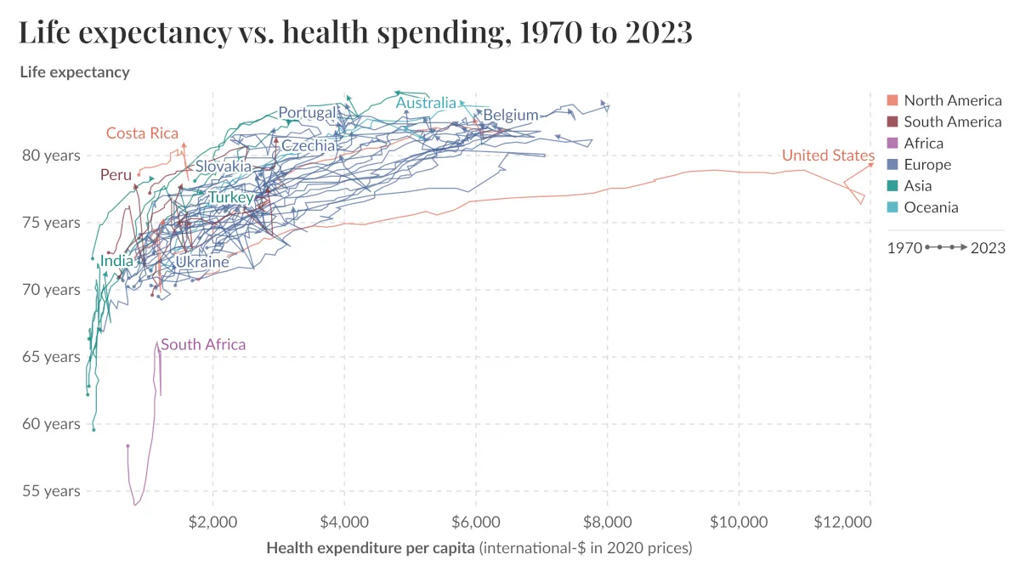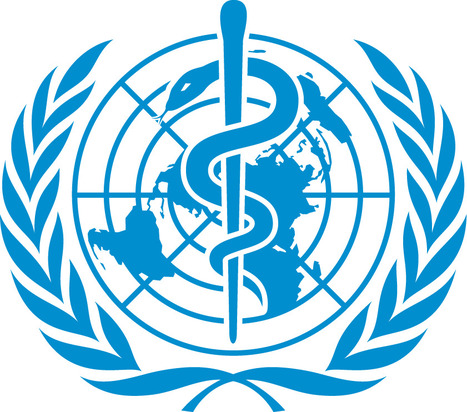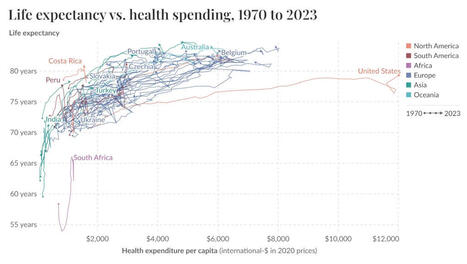Pharmageek

"Selon une nouvelle analyse de l’Organisation mondiale de la Santé (OMS) et du Centre international de recherche sur le cancer (CIRC), jusqu’à quatre cas de cancer sur dix dans le monde pourraient être évités. Cette étude porte sur 30 causes de cancer évitables, dont le tabagisme, la consommation d’alcool, le surpoids, l’inactivité physique, la pollution de l’air, le rayonnement ultraviolet et, pour la première fois, neuf agents infectieux."
Lire l'article complet sur : www.who.int

Comparing life expectancy and healthcare spending shows why the U.S. is a global outlier—and why more spending doesn’t guarantee longer lives.
Lire l'article complet sur : www.visualcapitalist.com

Prévenir la démence par la prise en charge vasculaire dès 45 ans - Hypertension, diabète ou tabagisme mesurés à partir de 45 ans sont impliqués dans jusqu’à 44 % des cas de troubles neurocognitifs observés avant 80 ans d’après une étude américaine. Les effets sont amplifiés chez les femmes, les personnes noires et les non-porteurs de l’allèle APOE ε4.
Lire l'article complet sur : www.whatsupdoc-lemag.fr

Vieillissement : un méga-investissement de 25 milliards de la caisse des dépots pour repenser la médecine du grand âge - La Caisse des dépôts va mobiliser plus de 25 milliards d’euros sur cinq ans pour accompagner la perte d’autonomie des seniors et améliorer l’accès aux soins des Français, annonce-t-elle mardi dans un communiqué.
Lire l'article complet sur : www.whatsupdoc-lemag.fr





